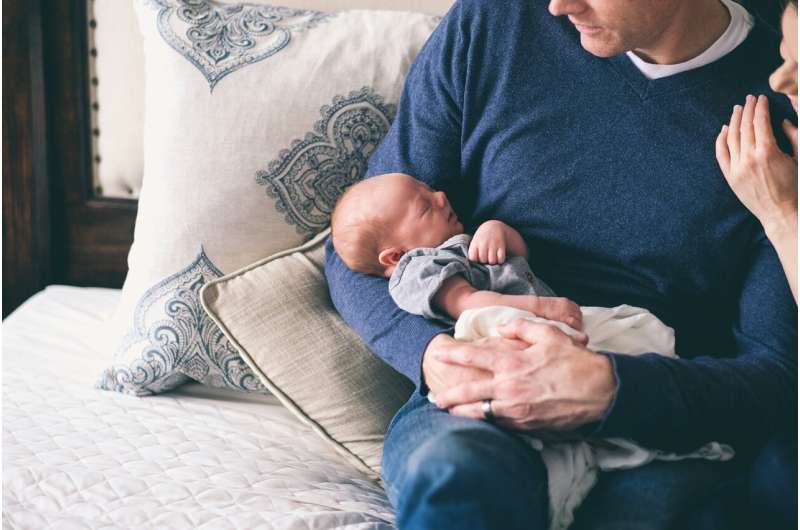
New research from the Institute of Psychiatry, Psychology & Neuroscience (IoPPN) at King’s College London with the Finnish Institute for Health and Welfare and others has found an association between fathers who experience too much stress in the months following the birth of their child, and the child’s subsequent development of emotional and behavioral problems at age two.
The research, published in the Journal of Child Psychology and Psychiatry, suggests that new fathers should be assessed for stress during the perinatal period as it presents an opportunity for early intervention to help prevent future difficulties for both father and child.
The study used data from the Finnish CHILD-SLEEP birth cohort. 901 fathers and 939 mothers completed questionnaires on stress, anxiety and depression during pregnancy and three stages in the postpartum period, with a final survey taking place at 24 months.
The new fathers were asked a number of questions about their levels of stress, including how often they felt that they were unable to control important things in their life, and how confident they felt handling personal problems. Their stress levels were scored on a 20-point scale, with those scoring 10 or more being considered as experiencing “high” levels of stress. Participants were also asked to report on their child’s emotional and behavioral problems at 24 months.
Overall, around 7% of participating fathers experienced high stress at the first three stages measured in the perinatal period. This then rose to 10% at two years postpartum.
Researchers identified the strongest association between paternal stress at three months postpartum and childhood emotional and behavioral problems at age two, even when accounting for other factors like maternal stress, anxiety and depression. Paternal stress was more strongly associated with childhood outcomes than paternal depression or anxiety.
Dr. Fiona Challacombe, Clinical Psychologist at King’s IoPPN and South London and Maudsley NHS Foundation Trust and lead author of the study says, “Our study found that paternal stress makes a unique contribution to child outcomes, particularly during the early postpartum months. Nonetheless, men may be reluctant to seek help or express their needs during this time and may feel excluded from the maternal focus of perinatal services. Explicit effort may be required to engage fathers in discussions about the types of support they may need to manage stress and well-being and help prevent future difficulties for their children at what might be a sensitive stage of development.
Source: Read Full Article
